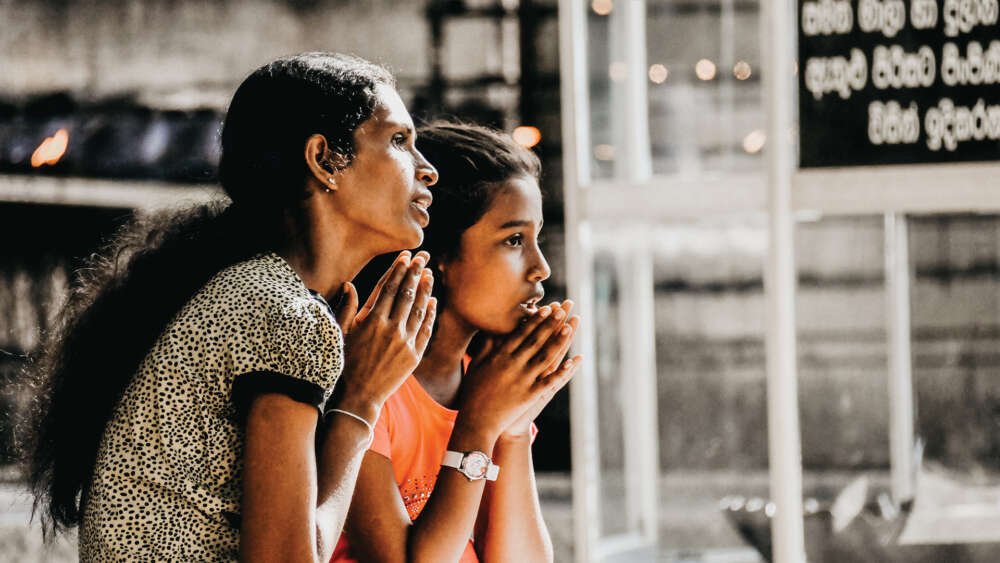COVID-19 sparks increased persecution of Christians
Christians denied aid and blamed for coronavirus
Millions of Christians are being refused COVID-19 aid in countries across Asia, the Middle East and Africa, according to the World Watch List 2021 Report, released today.
Over 340 million Christians – that’s one in eight Christians worldwide – experience high levels of persecution and discrimination because of their faith. While that sobering figure is the same as the previous year’s findings, the coronavirus pandemic has amplified this mistreatment, as revealed by the annual report by global charity Open Doors International.
Christians at times have been denied emergency COVID relief in minority-Christian countries including Bangladesh, India, Pakistan, Yemen and Sudan, where some were told “your church or your God should feed you”.
In India, 80 per cent of more than 100,000 Christians receiving emergency relief from Open Doors’ partners were turned away from “official” food distribution points.
“Some walked miles and hid their Christian identity to get food elsewhere,” the report says. “In southern Kaduna, Nigeria, families from several villages said they received one sixth of the rations allocated to Muslim families.”
The report continues: “For church leaders who rely on offerings from their congregation as their salary, the virus and ensuing lockdowns ravaged their livelihoods.”
Christians also reported being blamed for the pandemic by those who believe it was “created and/or spread by the West.” This was the case in Somalia, where Islamic extremist group al-Shabaab blamed Christians for COVID-19 by announcing it was spread “by the crusader forces who have invaded the country and the disbelieving countries that support them”.
Coronavirus has also caused an increase in the number of Christians being targeted for human trafficking, especially of women and girls for the sex trade. Christian converts and women also suffered an increased vulnerability to domestic violence during lockdown. According to Open Doors, there were also more reports in 2020 of kidnapping, forced conversions and forced marriage of women and girls.
“Being discovered as a Christian in North Korea is a death sentence.” – Open Doors
For the 20th year in a row, North Korea was found to be the most dangerous country for Christians, according to the World Watch List’s ranking of countries where Christians face the most persecution and discrimination. North Korean Christians continue to face extreme persecution in all five spheres of life on which the rankings are calculated: private, family, community, church and national.
“Being discovered as a Christian in North Korea is a death sentence. Those who aren’t killed instantly are taken to labour camps with other political prisoners where few survive the horrific conditions. Kim Jong-Un is reported to have expanded the system of prison camps, in which an estimated 50-70,000 Christians are currently imprisoned,” says the World Watch List 2021 Report.
The rest of the top 10 most dangerous places to be a Christian also looks much the same as last year, except Nigeria has moved in (and Sudan dropped its ranking). Based on violence alone, Nigeria also ranked number one as the worst place in the world for Christians.
“Now, more than ever before, we need to use our voice to advocate for persecuted Christians.” – Mike Gore
This year showed a general increase in the level of persecution facing Christians worldwide, with all countries in the top 50 scoring “very high” or “extreme” persecution levels for the first time ever. Beyond the top 50, four more countries also scored “very high” persecution levels following the impact of COVID-19.
“This is a sad but true reality of persecution and discrimination around the world,” said Mike Gore, CEO of Open Doors Australia and New Zealand.
“The persecutors use whatever tools possible to inflict the most harm and the greatest consequence on Christians who choose to follow Jesus. It is a terrifying thought that another human would use the fear of COVID-19 as a tool of conformity when it comes to one’s faith choice.”
Gore continued, “This is an alarming trend and one that Western churches and governments need to be mindful of and proactively address. Religious freedom is coming at a greater cost each year and now, more than ever before, we need to use our voice to advocate for persecuted Christians.”
Email This Story
Why not send this to a friend?


